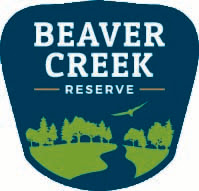By: Jeanette Kelly, Citizen Science & Education Director
This summer was the first year of our new Kestrel Host program. We had five landowners commit to putting up a Kestrel nest box on their property and regularly monitoring the nest box to determine if Kestrels inhabited the box and if their nest was successful. At the start of this program, I told participants to not get their hopes up. The likelihood of them having Kestrels in their box this 1st year was slim. It often takes larger birds a season or two before they use a new box.Well surprise surprise, we had a successful Kestrel nest this summer! Near the end of nesting season, I told the host that it was time to close up their nest boxes and we would cross our fingers for next year. When one host went to close their box, they peeked in a found a male Kestrel sitting on four eggs! I was informed that a happy dance followed.
The host monitored the box every few days keeping us informed on hatch date and development of the chicks. At around 20 days old, I headed to the host property to take measurements, determine sex, and band the chicks. It was an exciting event with the whole family joining. The four chicks, two female and two male, were all growing and well fed. The adult Kestrels successfully fledged all four chicks later that week. I know that come next spring; these hosts will be anxiously awaiting to see if the Kestrels return to their box.There was action in a few other boxes too. One host frequently witnessed a female Kestrel around his nest box. When he monitored his box, the female Kestrel was very vocal, letting him know she would prefer him to move on. The Kestrel laid one egg in the box and that was it. My guess would be that this year was the birds first nesting season and she was practicing. Practice makes perfect and maybe next year the nest will be a success.
No Kestrels, but another box had a very ambitious House Wren. If you have ever looked inside a Wren house, you know that Wrens fill every possibly space in a nest box with a twig. A Kestrel nest box is four times the size of a Wren box. Not sure what this little Wren was trying to prove, but happy they were able to pull off a successful nest.This has been a great program in engaging community members
in science and promoting Kestrel conservation. Thank you hosts for all your
time and effort monitoring your nest boxes. Thank you Xcel Energy Foundation
for the grant that made this project possible. A huge thank you to our amazing birdhouse
volunteer that made all the boxes for this project.
Watch this fall for information on how you can become an
American Kestrel nest box host. Learn more about our Citizen Science Center and the projects they've been working on!



